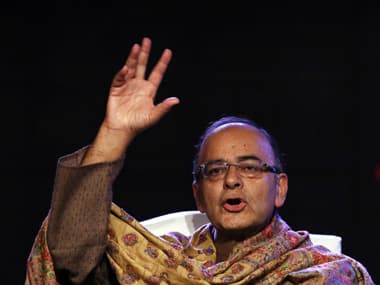So what was it that stood out in the largely self-congratulatory press conference of finance minister Arun Jaitley on the achievements of the first year of the Narendra Modi government? That his assertion about there being cohesiveness in decision making in this government notwithstanding, there is still confusion in the minds of investors on the issue of foreign direct investment in multi-brand retail. Barely 10 days after her own department – industrial policy and promotion - put out its annual FDI document listed 51 percent FDI in multi-brand retail, commerce and industry minister Nirmala Sitharaman hinted at a reversal of the policy. On Thursday, she said she would push for repealing the United Progressive Alliance’s (UPA) decision on opening up the sector. [caption id=“attachment_2259224” align=“alignleft” width=“380”]  Reuters[/caption] Jaitley’s response, when asked about this yesterday (on Friday), was perplexing. “My party’s views on this matter is known to everybody. But the policy formulated by the previous government is continuing and that is the position and that is the official position of the government.” Does that mean a Bharatiya Janata Party-led government is going against the official position of the party which has been set out in the manifesto (that it is against FDI in retail)? Does that mean Sitharaman was speaking out of turn? Does that mean Jaitley – her senior in the cabinet – was ticking her off publicly? What will happen if a proposal for FDI in multi-brand retail does come before the government (it is not in the automatic route)? Sitharaman on Thursday said she will not entertain any such proposal. When Jaitley was asked about it last week, he was cryptic – “when it will come I will respond”. The Foreign Investment Promotion Board (FIPB) - which has to approve proposals in instances where FDI is not in the automatic route – is under the finance ministry. So Sitharaman’s views may not prevail. The only thing that was certain was that the Congress is going to be pleased – the party was already crowing about its stand being vindicated when the consolidated FDI document did not drop mention of FDI in retail. The Congress will not be pleased about Jaitley hogging the credit for the goods and services tax (GST), much of the groundwork for which was done under the UPA government, but then it did the same when it was in power. P. Chidambaram took the entire credit for the Fiscal Responsibility and Budget Management Act, when the Act was passed in 2003 by the National Democratic Alliance government and only the notification remained to be done by the UPA. Ditto for the national value-added tax (VAT), much of the groundwork for which had been done by Yashwant Sinha. What did Friday’s press conference indicate about the Modi government’s agenda for the coming year? The agenda does seem quite ambitious – getting the Land Acquisition Bill through, doing the groundwork for GST (setting in place the technology architecture and enabling legislations), a massive disinvestment programme (though Jaitley was silent on strategic sales of profit-making public sector enterprises), bringing in a bankruptcy code, corporatisation of ports, a huge infrastructure push, stepped up public investment in agriculture and rural infrastructure. He was, however, silent on labour law reforms and public sector reform. All this certainly sounds great, but what happens on the ground will be the real test. Jaitley was less forthcoming on the challenges the government will face in doing all this. The Congress is determined not to let the land bill go through and merely mocking it for being anti-growth and development will not make the problem go away. The roll-out of GST requires a lot of nuts and bolts to be fixed (other than the technology architecture and enabling legislations), ports corporatisation may come up against resistance from the unions. The government might get everyone’s indulgence when it pats itself on the back at the end of the first year. But it will be under close and harsh scrutiny from now on.
The government might get everyone’s indulgence when it pats itself on the back at the end of the first year. But it will be under close and harsh scrutiny from now on
Advertisement
End of Article


)

)
)
)
)
)
)
)
)



